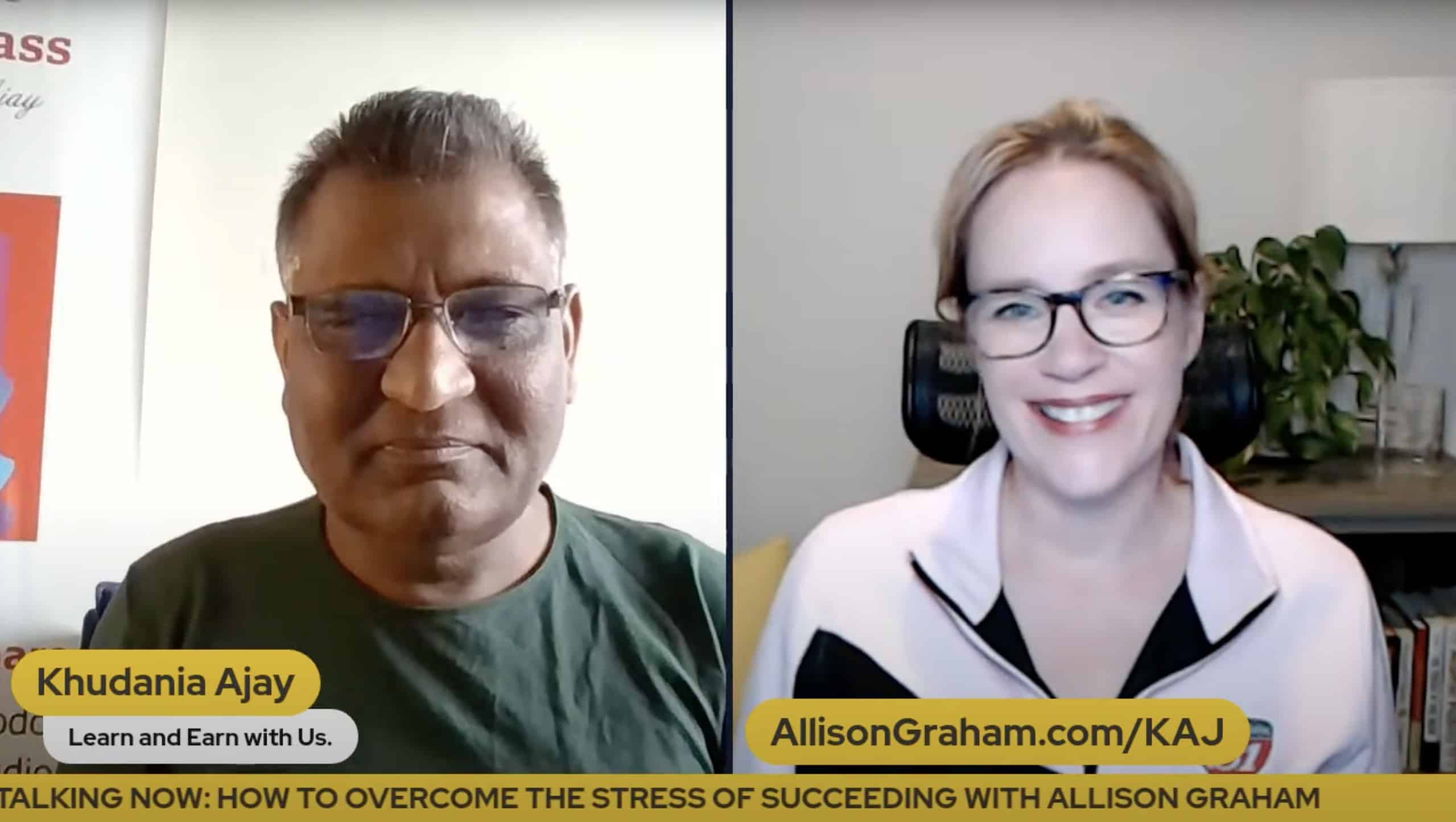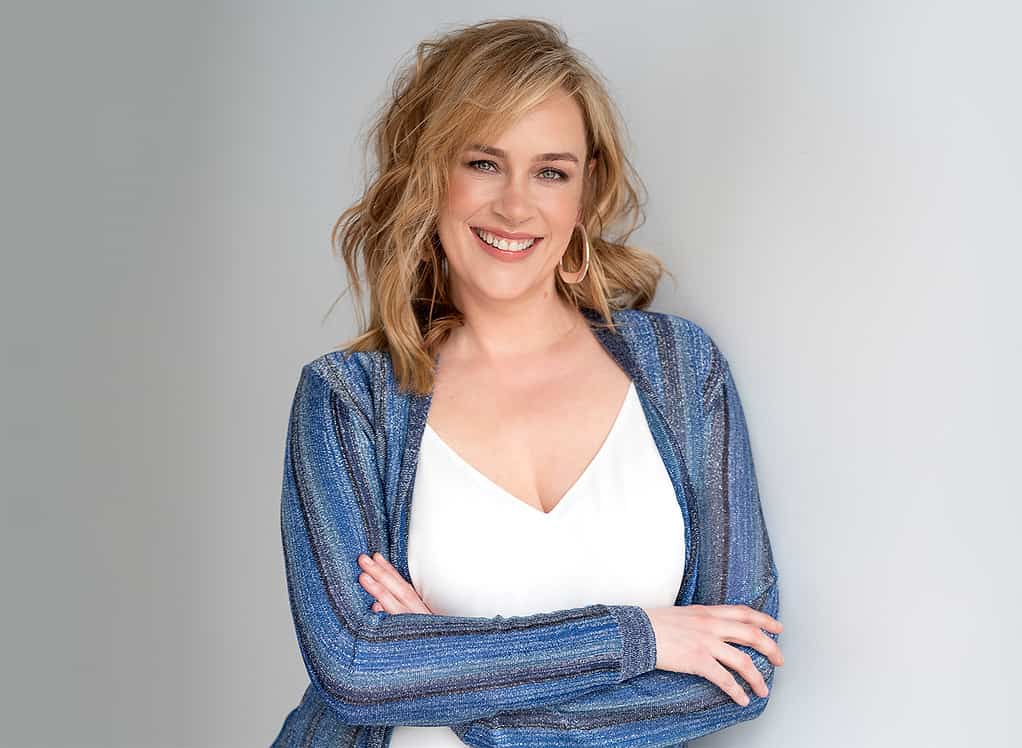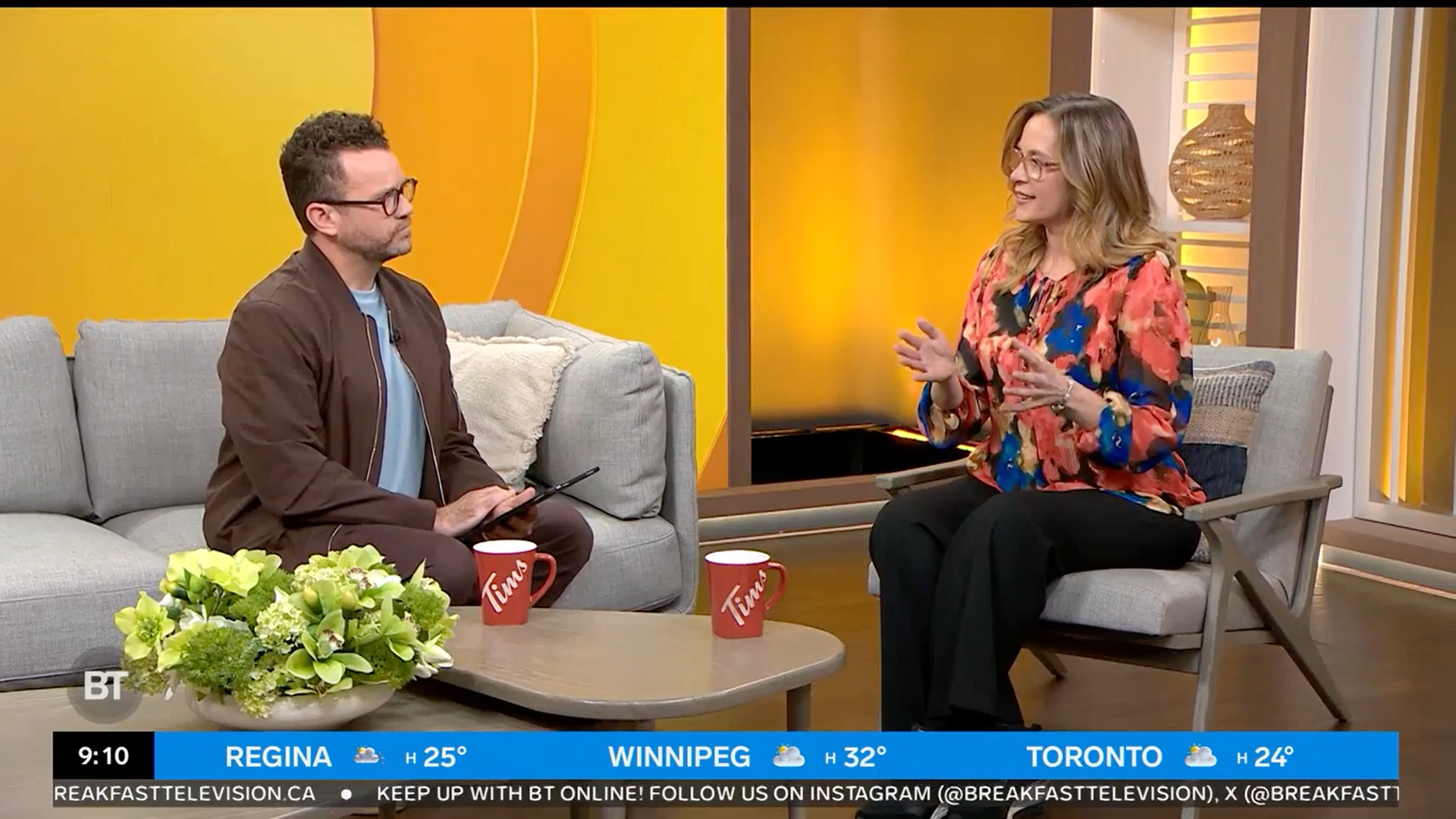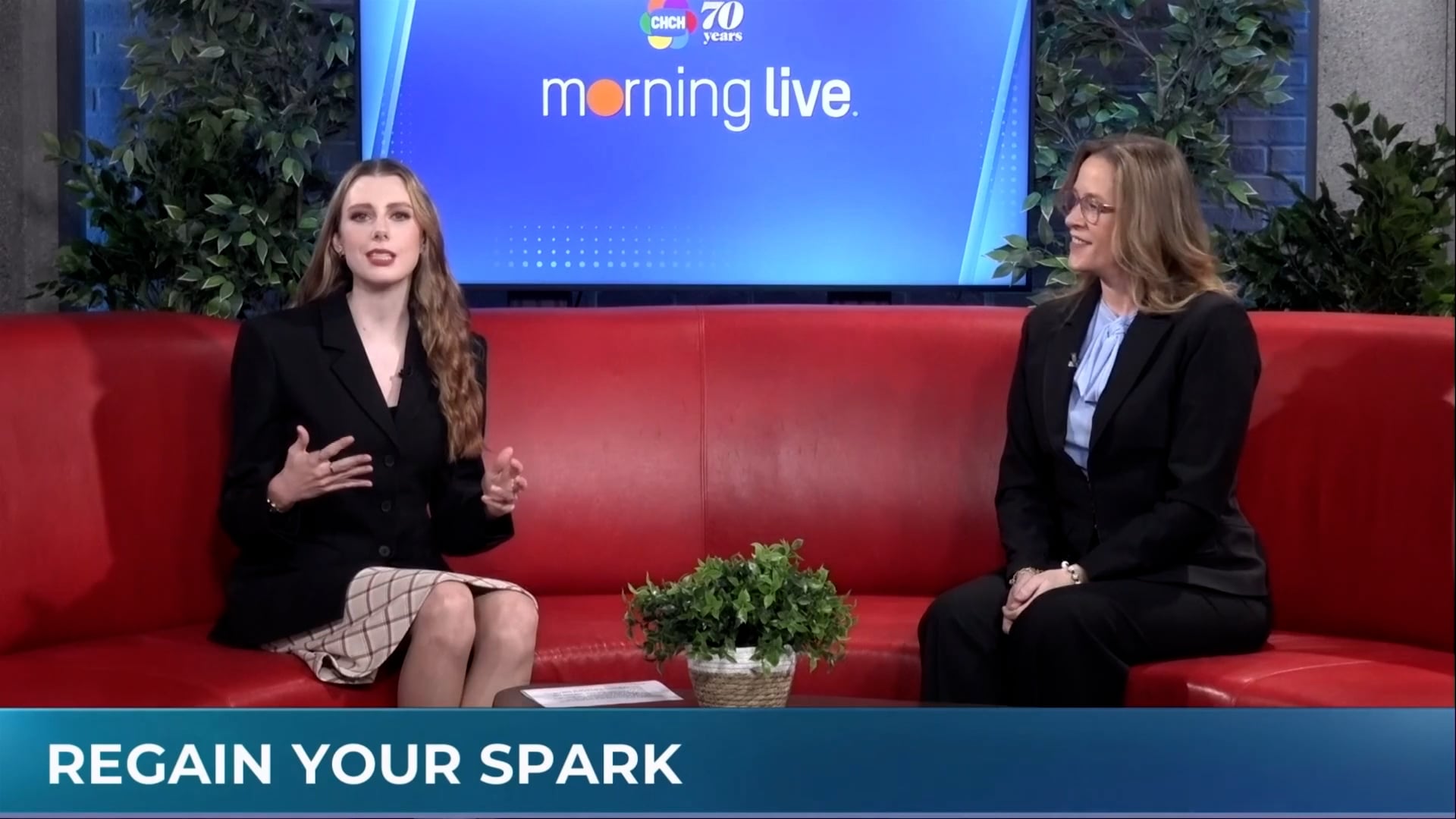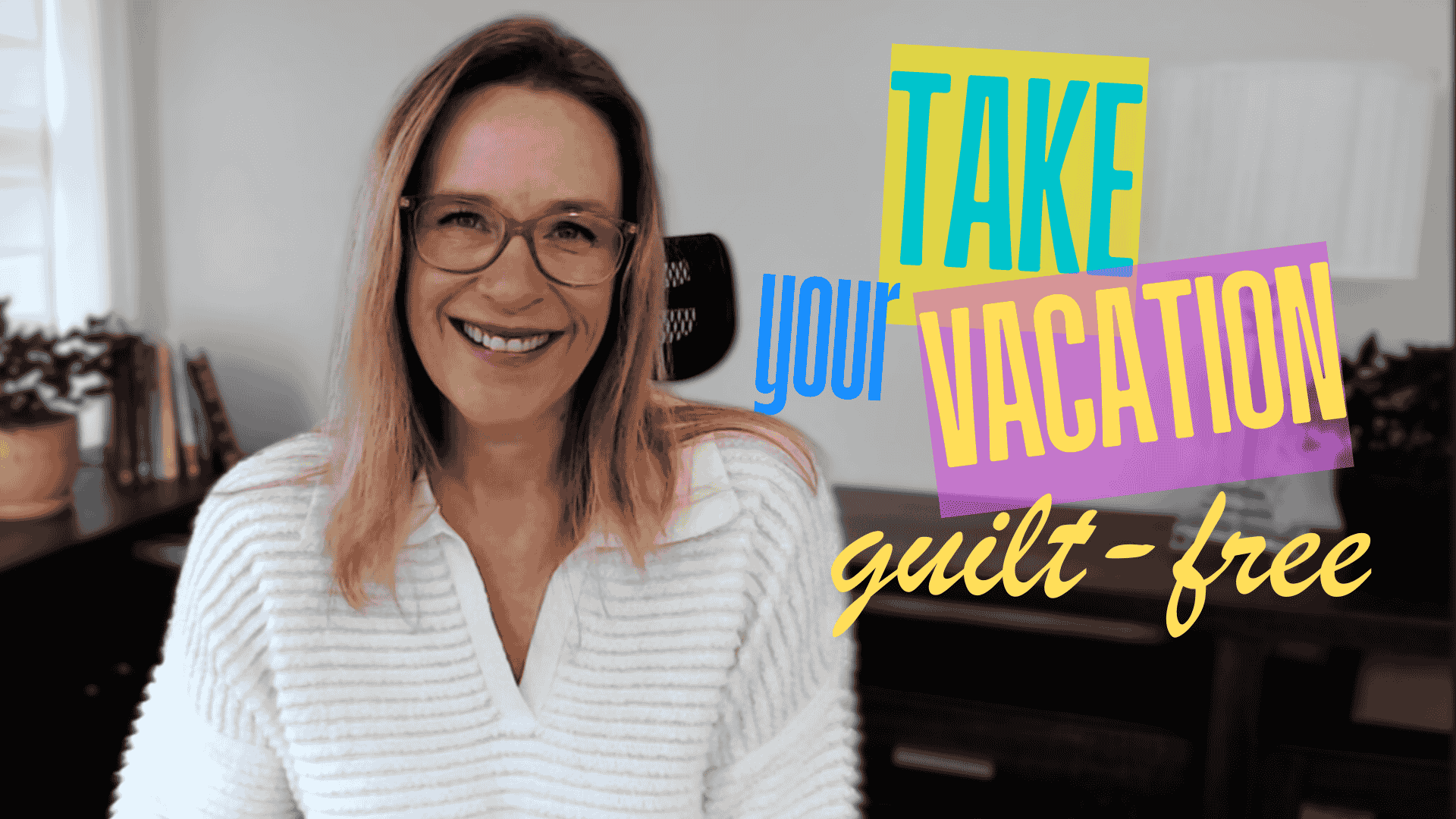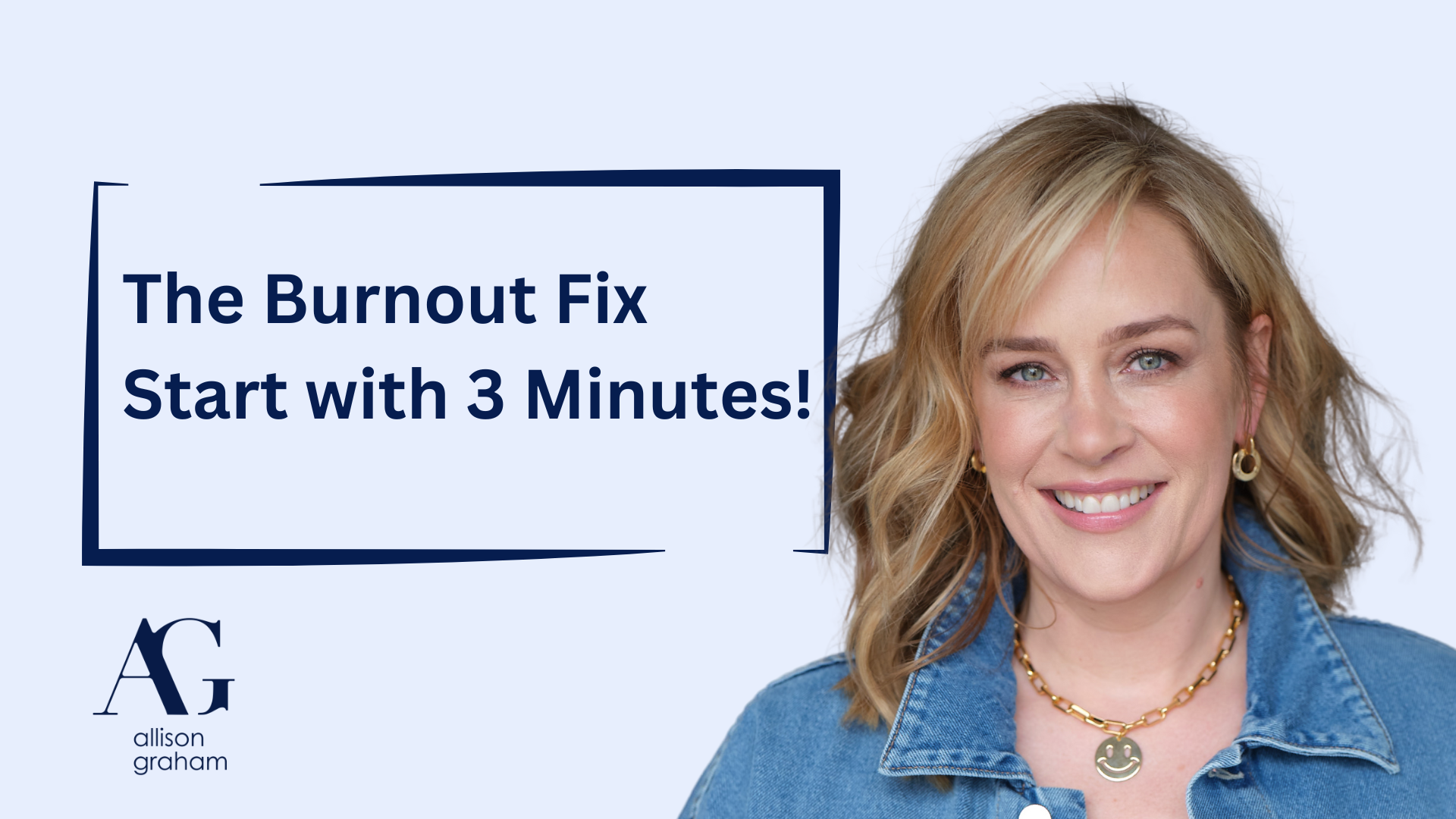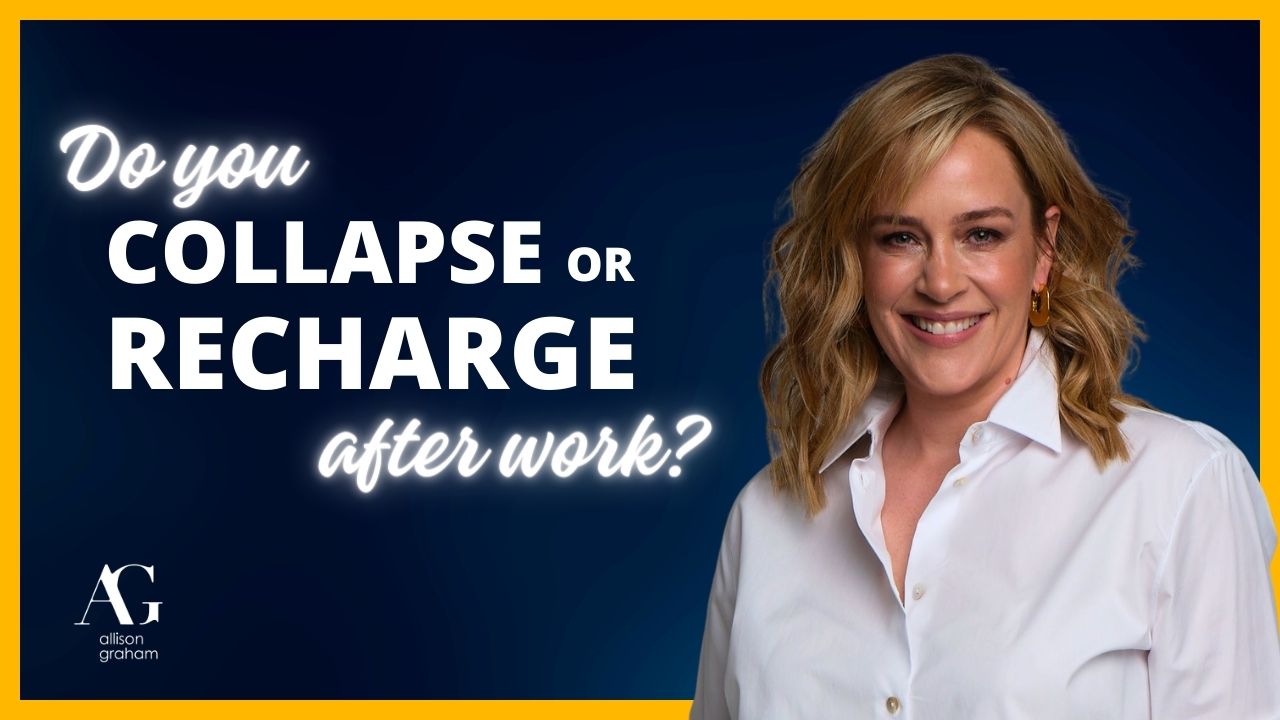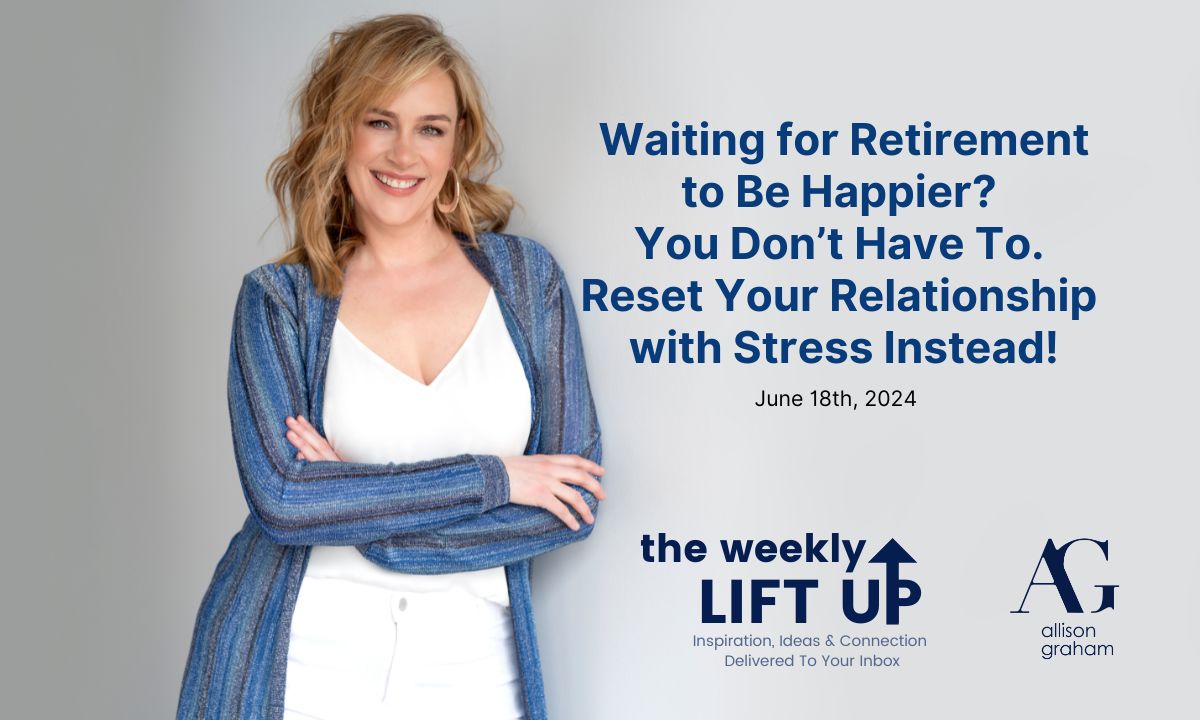How to Overcome the Stress of Succeeding with Allison Graham, keynote speaker, author and consultant who works with highly-accomplished men and women who love their work, but want more mental and emotional space away from the constant stress of the daily grind. #stressmanagement #workculture #businessgrowth #mentalhealth #productivity #kajmasterclass Khudania Ajay
In this episode, join us for an insightful conversation with Allison Graham, a renowned keynote speaker and author, as she shares valuable strategies to overcome the stress of success. Discover how success can sometimes lead to stress, and learn to differentiate between destructive and empowering stress.
Allison introduces the concept of ‘personal capacity design,’ offering practical solutions to manage stress effectively. Get ready to gain valuable insights and actionable tips to lead a more balanced and fulfilling life!
5 THINGS YOU’LL LEARN FROM THIS Interview with Allison Graham on the KAJ Masterclass:
- Understand the relationship between success and stress and how success can lead to increased stress levels.
- Differentiate between destructive stress (overwhelming and suffocating) and empowering stress (driven by purpose).
- Explore the concept of “personal capacity design” to optimize time and energy and reduce stress.
- Discover practical strategies to cope with stress and manage overwhelming emotions effectively.
- Gain insights from Allison Graham’s personal experiences and professional expertise to improve well-being and find a sense of balance in life.
ABOUT THE GUEST Allison Graham is a keynote speaker, author and consultant who works with highly-accomplished men and women who love their work, but want more mental and emotional space away from the constant stress of the daily grind. Her last book, Take Back Your Weekends: Stress Less, Do More, Be Happier is giving hope to professionals across the globe that they can have it all.
Connect here: https://allisongraham.com/
ABOUT THE HOST Khudania Ajay, content entrepreneur, podcast host, and independent journalist, brings global Masters of Money and Business to his audience through The KAJ Masterclass LIVE. With over 20 years of experience in renowned organizations like CNBC (India), Reuters, and Press Trust of India, Ajay now helps his audience succeed through his LIVE Masterclasses. Connect with Ajay: https://linkedin.openinapp.co/kaj
For event speaking or hosting inquiries kajmasterclass@gmail.com
ABOUT THE KAJ MASTERCLASS LIVE Join senior journalist Khudania Ajay on the KAJ Masterclass LIVE podcast, where you can learn and profit from the insights and experiences of global business leaders almost daily. If you’re a driven young professional seeking career development, entrepreneurship, and innovative ways to make money, this is the place for you.
Watch: https://yt.openinapp.co/kajmasterclass Listen: https://podlink.openinapp.co/kajmaste… Read: https://substack.oia.bio/kajmasterclass Apply to be a guest on the show: kajmasterclass@gmail.com LET’S BE FRIENDS Website: https://thekajmasterclass.live/ LinkedIn Page: https://bit.ly/3y2yKrM Twitter: https://twtr.openinapp.co/kajmasterclass Instagram: https://insta.openinapp.co/kajmasterc…
Transcription (unedited) of Allison Graham interview by Khudania Ajay on the KAJ Masterclass Live
How to Overcome the Stress of Succeeding Allison Graham
SUMMARY KEYWORDS
stress, life, people, Allison Graham, give, advice, feel, work, control, pain, challenges, day, deal, happy, survival, emotions, patterns, stressful, neuropathic pain, expectations
SPEAKERS
Allison Graham, Khudania Ajay
Khudania Ajay 00:25
Welcome to this very special edition of the KJ masterclass live, the show which ensures that you profit from your time spent here with experts, either through the Industry Insights, information, or simply learning from them. And today we have Allison Graham, keynote speaker, author and consultant who works with highly accomplished men and women who love their work, but want more mental and emotional space away from the constant stress of the daily grind. Welcome to the show, Allison.
Allison Graham 00:58
Well, thanks for having me. I you know, there are very few people I would wake up late for early for Yeah. I’ve already started my night’s sleep. But I’m super excited to be talking with you. And I know you do incredible work. So yeah, yes, right.
Khudania Ajay 01:14
Even even the same for me, Allison, I am not a early vicar. But this was this was a good one. And you know, this was not as stressful. But so we will be talking about stress. But this meeting was certainly not as stressful, very smooth, well coordinated. So welcome to the show. Once again, welcome to India. And I’m sure a lot of people, especially small businesses, entrepreneurs, a lot of freelancers, and people who want to succeed in life, in whatever they do, they will be benefiting out of this. And we’ll be talking about how to overcome the stress of succeeding. So first to understand from you, Allison, is that you talk about the about how success can you know, can actually lead to stress? So I wanted to understand with my first question is what gives more stress success or being away from it, I don’t want to use failure here. But I want to understand if success can be stressful than
Allison Graham 02:18
an either, it can actually be stressful, because here’s the interesting thing is the stress is about our patterns. So if you are highly stressed, when you don’t have financial resources, when you don’t have the business that you dream of, or, you know, really great support system, then when you become really successful, it’s just going to be magnified. And so you can actually be equally stressed on either end of the spectrum and everywhere in between.
Khudania Ajay 02:46
Okay, okay. So how do you look at stress, I stress is a very common word, and everybody has their own way of looking at things, even sometimes, you know, trying to be happy can become stressful. Sometimes, you know, a lot of people say, I want to be happy, I want to be happy, I want to be happy. And they’re just stressed out. What so you’re
Allison Graham 03:10
right. And so I let’s talk about that happiness piece. Because I used to have this assumption that I needed to be happy every day. And if I wasn’t happy than I was failing, and I would beat myself up because, like, of course, that’s the goal, right? I want to be happy. The truth is, happiness is one emotion. It’s not our neutral state. The only way we can truly appreciate happiness is if we understand and feel sadness, just like we need to understand joy, like in order to understand that we need to know what despair feels like. And so I really spent a lot of years chasing, happy all the time. And then I realized not It’s not possible. And to your point A J, it’s like, you add in more stress by trying to be something that isn’t feasible, that it has unrealistic expectations. And so to answer your other question around stress, I actually believe that most of the overwhelming suffocating stress and maybe you can feel this or know what this feels like sometimes where you get sort of overwhelmed. And like for me, it feels like I can’t breathe, right? It’s really hard to focus on the work that needs to get done. And it’s like, right, like this intensity level, and there’s just so much going on. And often people will say to me, like, I just feel like I’m a firefighter, right? Like, I’m putting out all these fires of everybody else’s issues all the time. And I just can’t breathe. And so that to me, is what I call destructive stress. And I believe that it is self manufactured, and is about our patterns and our interpretation of the world. And we can absolutely minimize that with the right tools. Now, there’s also very empowering stress, those who are driven for a bigger purpose for really wanting to succeed for doing the best in whatever way they define that will often say to me, you know, like, I kind of like it. Like, I love a good deadline, I love chasing my goals, I love feeling inspired. And because of that, when we can accept that we can actually use that to your advantage. And I, I consider that empowering stress. Now, there’s another kind of strep and for years, I always thought two kinds of stress, there’s good, there’s bad, and I just lived in those buckets. And I am very good at, you know, bringing myself out of the destructive stress fight like spiral, and using empowering stress. But then I had some really challenging issues in my family. And I, Myself was going through some health challenges, again, that I had overcome, and then it got worse and, and I was like, Why am I feeling so much stress? Like, why can’t I know all the tools I know what I’m supposed to do? And it was like, oh, because it’s natural. Like stress is designed to show that we’re in danger. It’s a signal that says something about you or someone you love is in danger. And your fundamental existence is at risk. And that to me, is the survival stress. And so to name it, destructive, empowering, survival, and then we can give everything context. That’s my philosophy around stress.
Khudania Ajay 06:46
Right, right, Allison. So if stress is about danger, it’s about survival, then how can success lead to stress, because then you feel that you are financially independent, that stress is gone, you have things that you can take care of, you can you can travel wherever you want, even your accepted acceptance in family in your social circles is much, much better, then how is it leading to stress? Is it what we are talking about is the imposter syndrome? What What else is do you add when you talk about your that stops or forgetting on the stress of your success, and then you have a solution also, so we’ll come to that,
Allison Graham 07:29
oh, I have lots of solutions. So what’s interesting is you make the assumption that when you’re successful, then you can pay all your bills, and you are going to have better relationships and all of that that’s not necessarily true. In actual fact, when you talk to extremely successful people, it’s the same challenges, more zeros. I remember, I was talking to a friend of mine, who who’s quite successful, and I was like, you know, it must be kind of cool. You don’t have to have all these problems that I have, right? And he goes, Oh, Alice, and it’s just more zeros. And I’m like, oh, because then but you have other people coming at you, you have bigger decisions to make you have more staff relying on you like it’s, there’s a lot of pressure. And then if you have a lot of fear and attachment to that, you may have a lot of survival stress and thinking, What if I lose it? What if I’m going to what am I going to do if it all goes away, and I know some very successful business owners who are still trying to pull out of, you know, the, everything that COVID did in their business, like it just completely got rid of their business. And so success does not ensure survival. But what happens is, regardless of our working life, each of us has our personal life, we have potentially health challenges that can be into the survival stress, there could be financial ruin, that can be survival stress, maybe somebody dies, right who you love, of course, you’re gonna go through all of those emotions, that’s an adversity, like, it doesn’t matter how good you are at managing your stress symptoms. If something like that happens, that’s a catastrophic, external force or something that could really legitimately hurt your family, right? That can happen when you’re successful. And so my philosophy is let’s, let’s understand if you’re in a situation where you’re struggling, whether it be financially or with your relationships or in your health, then we have to honor those emotions. We have to say, okay, you know what, yeah, I, I feel this and then recognize that those intense emotions can actually overshadow everything else in our life. And then we get into these extreme storylines, like, oh, you know, everything’s going wrong. My life is awful, like, you know, whatever storyline that might be in your head or that you’re, you’re articulating out loud. Those are like they aren’t actually factual, like, is everything awful? Probably not. But because the emotions of survival stress are so intense, it can very easily hijack everything else that’s going on in our lives.
Khudania Ajay 10:16
Right, right, Allison. So if those zeros adding to your bank balance to your, you know, to your financial capacity is not the 100 person stress free life, that then what would you tell to the leaders to the business owners to startup to small entrepreneurs, especially, even to the larger ones? Is that what we do take what path to take? Because this path is not guaranteed to give you a stressful life that you actually want to people generally think, okay, if I hit a jackpot, jackpot means I’m settled for life, everything is done. And that is, so it’s not working that way. So what is the what is the other path to take? Is there a middle way? And what is your you know, you talk about this personal capacity design, is that the solution that that will help in these times?
Allison Graham 11:14
I believe it is I’ve seen it help people who are exceptionally stressed, really be able to figure out, how do I create a life that I feel in flow, and I feel a sense of control, because there’s so many things that are happening around us, and the only thing that we can really work on and I don’t even think we can control it because we have patterns, right patterns of stress and how we react to challenge and challenge will happen no matter what they will happen on a global level, at our, you know, municipality level at our, you know, our family level, and our individual level. And so those challenges how you deal with them, when you are climbing the ladder of what you perceive to be stress is exactly the same as you will feel them when you’re in the middle of it. The challenge is, is as you get older, some of the earlier tools like for me, I just worked all the time, like that was my answer, right? 18 hour days, deserve to hit the pillow constant, go go go go go go, trying to serve everybody else’s needs, forgetting about my own. And just like having this this expectation that I had to give, give, give, give give well, it didn’t matter how successful I was, at any point in my journey, if I was continuing those types of patterns, I would never be able to actually ever feel a sense of peace in my own life. And so from a personal capacity design perspective, essentially, the way I look at it, is if you imagine that, you’re, you’re how much you have to do, to think to feel and to be each and every day, and you put it in a cylinder. Okay, so you’ve got this, like, you know, jar of everything you have available. If it’s too high and too full, then it’s that sensation of suffocating that we were talking about earlier, so you just no room to breathe, and know what room to think or to even just like, have fun and laugh and enjoy the journey. But if you get too low, and you don’t have enough going on, what happens is you actually will become bored. And so most people do not actually want a stress free life, because they would be completely uninspired and bored out of their minds. But somewhere in the middle is a perfect for you. And every one of us is different on how much how much activity we need, how much we need to be juggling in our brains and our hearts and our minds. Like it just we all are a little bit different in how we design our lives. And what I’m hoping I can inspire people to do is to step back, look at the repeating moments of angst. Or AJ Does that make sense? Like the repeating moments of angst, the things that over the course of a week, it’s like, oh, I you know, when I have to do my paperwork, or when I have to do my invoicing, or when I have to do sales, I get really, you know, anxious and overwhelmed, and it’s just not working at the way I want it to work. Let’s look at what those are. And then take some space and look step back from them and look at them objectively. And let’s problem solve them, one by one by one by one. And if we can do that, then over time, we can still do the same amount of work when our capacity was way up here and we were burning out right at the top of our cylinder. But we can shrink the amount of time that something takes us I’ll give you an example. I was out for lunch with a friend of mine, and I’m in Canada. So I, she’s part of a large firm that, you know, big company, you know, National Head Office, but she was one of the executives locally. And she sits down for lunch. And I’m like, How are things going? Are you doing? Well, she goes, it’s awful. So Oh, my goodness, this is a big deal. Tell me what’s going on. And she said, work. She said, It’s time that I just go find a new job. These people don’t understand what it’s like on the ground. They don’t know how much work I do. They are so like, you know, disrespectful. They want me to do this new report. And, you know, for three weeks, I’ve just been, oh, I can’t believe that I’ve not done it yet. I said, Wow, this must be a big deal. Like, how long is this report going to take you. And she looks at me and she leans back in her chair, and she says 15 minutes. I’m like, You wasted three weeks, feeling resentful, procrastinating, getting angry with the people because of a 15 minute report. And it’s like all of those things of feeling disrespected of, you know, having too much workload not being organized. All of those were legitimate issues. But because she wasn’t dealing with each of those issues strategically, she was allowing it to, like, grow and grow and grow and grow and grow and grow. And it’s like, it was just consuming so much of that capacity jar. And it didn’t need to be, she could have just done the 15 Minute report, and then recognize all of those emotions, the negative storylines, her pattern of, of procrastinating when she wasn’t happy with something, and dealt with each of those individually. And then just got the report done. So it’s not nagging. Like we’ve all been there, right? Like we we have to email we need to send we have the difficult client we need to talk with, I mean, I am so blessed to have incredible clients. So I don’t have that anymore. Because I’ve designed my life to be sure that I’m, you know, working with people who are really excited about growing and curious and being compassionate with themselves, right. But like, in the old days, there’d be certain clients where I’d be like, Oh, like this is going to drain my energy. And instead of recognizing, you know, where that was coming from, like, maybe I was under charging, or I was resenting myself for not having boundaries, or I was allowing scope creep, there could have been so many things, but each of those needed to be dealt with individually and not blanketing everything else and making life harder than it needs to be.
Khudania Ajay 17:57
Right, right, Allison, so I read sometime back is that stress is about things that you can control, but are not able to do it, for example, like, there are so many things, we don’t have it in our hands, so we never worry about them. It’s like you see the Earth, it’s floating in nothingness we never worry about, okay, it can just lose its gravity and suddenly go into nothingness and will be lost. That can be a possibility, but we don’t worry about things we don’t either, you know, have any control about but we procrastinate or do whatever our stress about things that we think we have control but we are not able to do it a personal side a person living in the countryside happy with his life is not worried about about all the fine dining restaurants that he has not gone to he or she has not gone to work, you have to you have to create that list. And you have to check all those places that you want to go all those things that you want to achieve. Maybe a lot of people don’t even have that bucket list sometimes even that can lead to stress. How do you look at that and then you talked about you know that what matters to you actually, so how to I know how to create space, especially mentally about things that matter to me most you just get, you know sucked into by unnecessary things, unnecessary pressures, and in your case, just to please others or maybe you know, many people just want to get that you know, words of words of things like how good you are at your job and actually they may not even mean it. They’re just trying to get advantage of how do you look at all this thing?
Allison Graham 19:44
Oh my gosh, so much there to unpack. All right. So first of all, I think a lot of people are already aware of where they’re, they have patterns that they know they want to change. Like most of us have something that it’s like, Oh, I wish I just didn’t do that. So that’s always really great starting point. Now there are I have 45 barriers to performance I call them that can actually make your heart or your life harder than they need it needs to be. And I’ve, you can see on the screen, I’ve got an actual web page just for your listeners and your viewers. And they can go there and register. And I will give you my barriers to performance list. So that you can have and it’s a whole tracking worksheet. So I’m happy to give that to you. So I’ll add that on. I already have the lift up, I sent out a weekly lift up that I wanted to encourage people to join if they were interested. But I’ll, I’d love to give you that, because that’ll give you something just to go okay, well, these things might be making my life harder than they need to be. The next thing is look and track through your week, how are you spending your time? Where are you, you know, feeling that anxiety and that overwhelm? If you’re feeling it at all, some people don’t feel it. And that’s great, don’t don’t fix it, if it ain’t broke, as they say, right. So just really getting clear on what you want to change. But it’s interesting, because you brought out the concept of control. So often, in our lives, we’re taught to not focus on things that aren’t in our control, I think was that a double negative, but like, you know, if it’s out of your control, oh, I just got to forget it. Like people will say to me, Oh, I know, I shouldn’t worry about this, I shouldn’t think about this. And the the challenge with that advice, in my estimation, is we, the things that we care about the most are the things out of our control, you lose somebody who you love, if a relationship falls apart, if your child is ill, if you know, you, you lose a great big deal. Because like, and this happened to me recently, where a company I had a huge deal that I was so blessed and excited for. And I they had a new CEO come in, and they pulled the plug on it. And it was nothing that I could control. It wasn’t that they weren’t happy it was at the CEO said nope, not doing it. And my income went from oh my gosh, I’m gonna have the best experience of my life to absolutely zero, right. And this wasn’t that long ago. And it was just how good okay, so I can’t control that. So what I’m not going to think about it. We’ve got to give ourselves the space and the grace, to feel the fullness of our emotions in our life. For those things that really truly matter, while taking action on the things that actually we can control. So it’s a little bit of a nuance, I don’t want you ignoring anything in your life. If it’s causing an emotional charge for you, ignoring it, is probably not a healthy, that’s called denial. Right? That’s not a good way to be. So I’d say give yourself like even when COVID happened in in Canada, we sort of it kind of went on for a very long time here and like to suggest that I wasn’t like, again, my whole business blew up because I’m in you know, speaking at conferences and going and so everything was gone. And to expect myself to go oh, I can’t control it, which a lot of people tried to do would be just an is holding ourselves to an expectation that’s not feasible. And so I would let literally set a timer, five minutes, 10 minutes, 15 minutes, I would get down on the floor with my dog and I would cry. Right? And I would just be absolutely into the fullness and the horribleness of everything and just feel the grief. And then I would come out. And I’d be like, alright, what are the three things that have to happen now to keep my business and my life alive? And so when that’s how we can play that I can control this. I can’t control that teeter totter.
Khudania Ajay 24:14
Right, right, Allison. So now let’s look at the general principles or perceptions that we have around us. And then that is around which we learn to deal with our issues including stress. How about everything? Yes. Now let’s take your example. In your case, you had to face difficult times because of a squashed surgeon. And that led to a lot of problems. And you were stressed, burnt out. But you are still doing your work as a professional. Now, if you look at it from a medical point of the doctors said to you that You need to rework on the expectations that you have of your life. And those are important people generally people go to peep men of wisdom, to therapist, to doctors, to whoever is maybe elders in the society, whatever the culture is, and they get try to get advice, words of wisdom, solutions from them, that can guide them. But the problem is this. In your case, it did not work, it was like leaving your life aside, and leaving something else. So you decided to take your life into your own hands, you were suggested even to go on disability? And then you decided to take things in your own hands? And what would you advise people to do in situations where every other wise is about not letting them live their life that they want? How did you decide for yourself? How did you set yourself free from all the noises that were coming to you around you maybe, maybe center wise, if you see from a society point of view, but you grow free from that, and can come to achieve what you want it to and that is what we are doing? Interview you have written books also. And that is where a lot of inspiration is coming. Because you thought about you dealt with the, with the ideas with the stress that was created by so many other ideas? How did you manage to do that? What was the thought behind? What was the motivation? What is it? Would you like to tell people how to deal with situations when they are getting too many advice, even from professional people, how to break free of that, and live the life that they actually want to?
Allison Graham 26:53
Oh, my gosh, so many beautiful lines of, you know, thought that we could go in here. And I know we don’t have that much time. But first of all, yes, my eyes had crossed her mind neurologist, and he was my ninth specialist after a surgery that went wrong and caused neuropathic pain. And I, I was at the depths of despair, right, like I couldn’t handle the pain anymore. I didn’t think I could, I six people in my life had died very suddenly, in a very short period of time. And then I had a bunch of injuries. And so all of this combined, I was the poster child for what you would imagine burnout would look like. And he said to me, Allison, you need to reevaluate your expectations for your life, you are never going to work full time again, you will never be off pain medication. And it’s time that we talk about you going on disability. And I wish I could tell you that I had like, there was some magical, you know, expertise that I had at that moment, I will tell you the thing, and I can feel it in my mouth in my body right now, the thing that drove me it was fear. What if he was right? What if I had to give up on all of my dreams, and I was never going to work again. And I couldn’t accept that because I had a vision and most business owners, most people who want to be in business, they want to serve people. And I couldn’t imagine just spending my life not not realizing my potential. And I’ve got so so so so so far to go. And yet the fact that I’ve made it this far to me is like, you know, really, like I feel very blessed in that. But I think the other piece of what drove me was I would I would go for advice. And I went to the psychologists and the, you know, therapists and to the books and I, you know, they’d say, you have to be less stressed. And I’d be like, That’s a great idea, right? And then they’d say, exercise and I’m like, Do you have any idea the level of pain that’s happening in my body right now? Like, I can’t exercise, and I got so frustrated with the advice that I was getting? Well, you have to pace yourself. And, you know, like in the in the, you know, when all the cars are going around the track, the pace car doesn’t win the trophy, right? The pace car is the one that lets everybody else win, right and get everybody rolling. And I wasn’t willing to accept that. So I decided I was going to focus on I was going to be objective about my pain and my circumstances. And I was going to create a model that I could use to actually solve my capacity issue. And that’s what it was. was fear and frustration that drove me. And in terms of the advice, and actually, this was a commentary on my Lift, lift up email that went out this morning. If somebody gives you advice, it does not mean you need to take it. Every bit of advice, including everything I’ve said, including all of the, you know, hundreds of shows that you’ve done, or that are available on YouTube, like there’s so much gold in there. But just because somebody says something, you need to take their advice, pull it in your own self, be objective about it, and apply your their advice to your advice for you. Because what works for me is not necessarily going to work with for somebody else. That’s why a lot of my work is in frameworks. So you only get one life. Like, this is our round, right? Like, here we are, let’s do the best we can with this.
Khudania Ajay 31:03
Absolutely, let’s do the best we can. And you have done wonderfully well, not only for yourself. But now you inspire people who have written books. So tell us about how people can learn more about you, from you. From your books, you have read your book, take back your weekends. Tell us about that. There’s the next book coming on the stress illusion. Tell us about that. How can people connect with you, especially you know, professionals who would like to engage with you professional,
Allison Graham 31:32
please do. So I’ve created a web page for you, for your listeners specially. So it’s on the screen, Allison graham.com. Backslash, OK, AJ, and so go there. So that’ll be the start. So we get in the lift app, it goes out every week, it’ll inspire you give you some ideas. From there, I will add on the barriers worksheet that we just talked about. And then I spend a lot of time on LinkedIn. So I would love to invite people to connect with me. And be sure to put your name in there and just say like, I’m, you know, a viewer of AJ show, and I would love to be connected with you. So I have a reference point, please. And I’d love to be connected with you there. And let’s just like I believe that we can fundamentally shift how people are approaching stress in society. Because we don’t have to be as stressed as we are. There’s enough stuff that is the survival stress in our lives, that we don’t want to be adding destructive stress into the mix, like that friend of mine, who was misplacing her emotions and negative storyline and the barriers to performance. So you’ll learn all of that as we go through, and you’re on my email and everything. So yeah, please come say hi. And I, this is a journey. Let’s walk it together.
Khudania Ajay 32:57
Wonderful, wonderful. And thank you for this special, you know, I think for the, for the audience, I’m sure a lot of people will be able to make use of that. Now, my last question to you, Allison, is from the time you were advised to reevaluate your expectations from life, to go on disability to the time that you have author, you are a keynote speaker. And you know, you are a consultant who is now doing a lot of stuff. How do you see that journey? And what is the next phase that you are? What is it that you seek, after all this journey? Stressful? Not so stressful? Right now you are still ISIS, I can say that ICU in your happy space.
Allison Graham 33:47
But here’s the thing you don’t see is I still have the neuropathic pain. It’s been 17 years, and it feels like a knife is twisting into my body. And that’s happening as you and I speak. But I’ve made friends with the pain and so I don’t resist it. And unfortunately, it is having some more medical implications with being in pain for that many years. And it’s not typical. So I’m having to manage all of that. Having said that, I believe that I went through as much as I have gone through and continue to go through because my mission and my purpose on this earth is to serve others to help alleviate some of their challenges. And all of us face different challenges and I think it’s really easy to look at somebody like me, you know, I’m sort of just I can look great and I am just so in the present moment that I can feel the pain and not try to resist it and then still be absolutely We present and focus with you, and to allow, you know, conversations and ideas to just flow and come out and hopefully serve, you know, even if we touch like one person’s heart today. And, you know, they feel just a little bit okay, but more okay about the circumstances they’re going through that makes my heart sing. And so how would I describe this, I would not necessarily use the word stressful, I would say there were definitely moments of. I know, we don’t have that much time. But there, there are definitely adversities that require a lot of healing. Challenges that, you know, it just an all of us have gone, I think through this time in our life where it can feel like the punches don’t stop. Right? Like, it’s just one thing after another after another after another. And it can be as little as a bad day, where you woke up late and you’re, you know, not getting the office on time, or your you know, your kids are sick or whatever it is. And then you just like announced, you’re having a bad day, an hour into it. Well, you’re not having a bad day, you’re actually having a series of irritations in the midst of a day. Right. And so anyway, we could get but there’s, yeah, there’s been a lot of healing. There’s been a lot of hurt, a lot of fear, but a lot of a lot of joy. And it come back to what we were talking at the very beginning where you need to have the extremes, I think, because I’ve been so low. I’m so grateful. Right? And even before you and I came on here, I walked outside, I mean, it’s like midnight here where I am, and I tend to go to bed very early, about seven o’clock. So I get up very early. But that’s a pain but like, I just stood outside and looked up and saw like, you know, we’re after the full moon and the stars and I just gazed up and thought how beautiful like and just living in that moment of all right, we can integrate that into our days, even when we’re in pain, even when we’re facing financial hardship, even when our family is in trouble or whatever might be going on in somebody’s life. It doesn’t take away the beauty of life.
Khudania Ajay 37:38
Indeed, it does not take away the beauty of life while you are watching the moon and the stars. At the same time. I was seeing the sun coming up a beautiful, beautiful life. And I wish for you that May the power of the sun, the moon and the stars give you as much respite from the pain that you have been suffering because of somebody else. I’m sure they will listen to it. And tomorrow will be a better day with this wish. It’s a wrap on this very special edition of the KJ masterclass. Thank you so much indeed, for joining us. Thank you.
